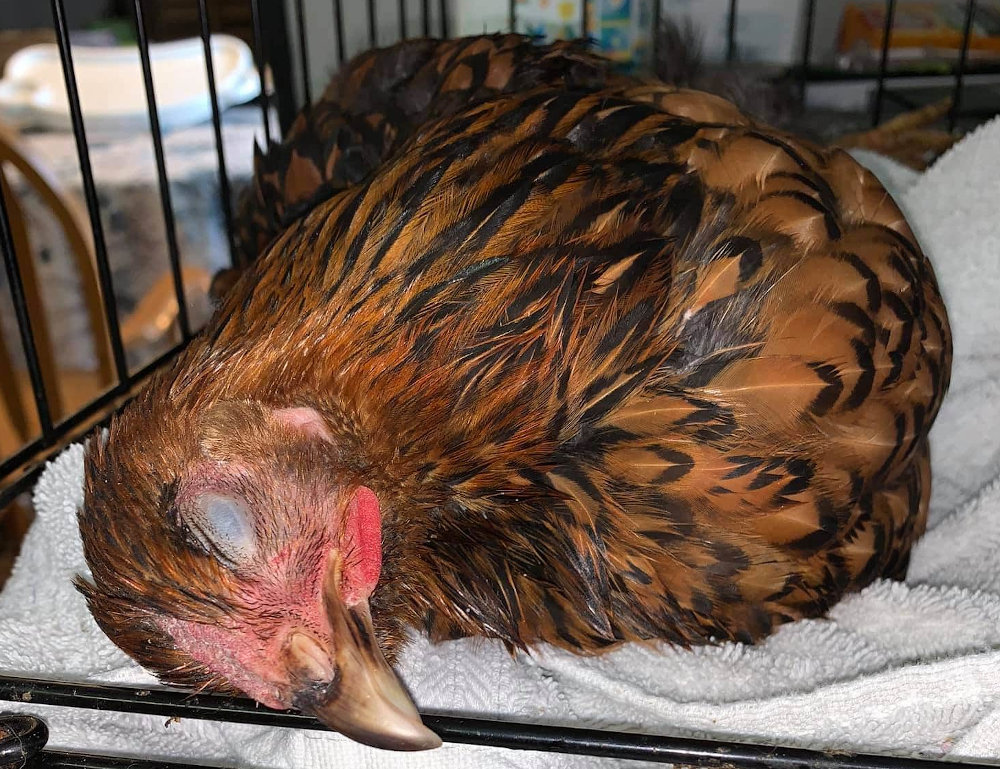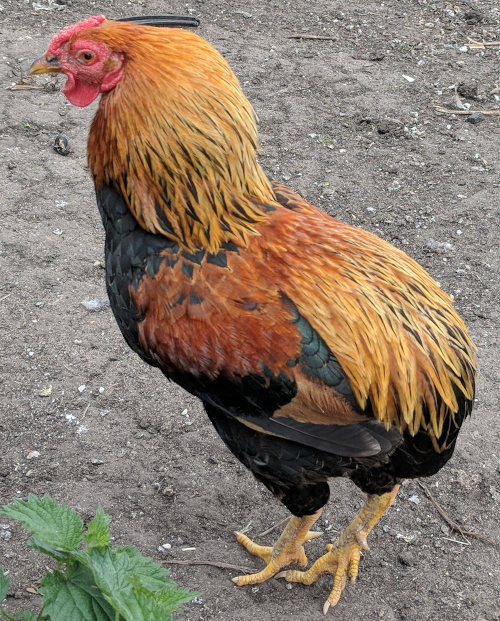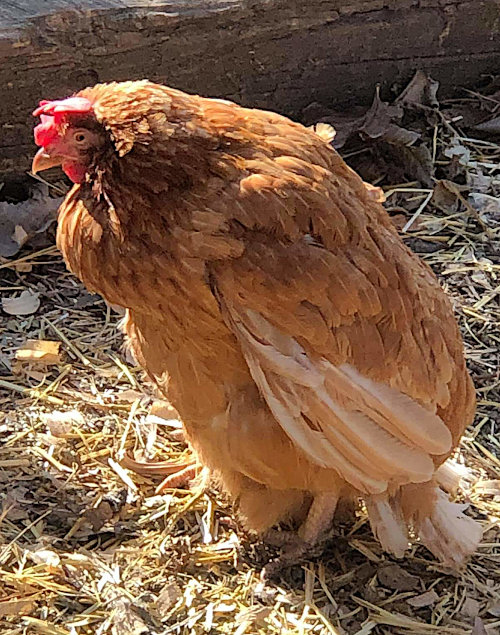Lethargic bantam chickens.

Chickens, especially bantams, are by their very nature busy industrious creatures. They spend a great deal of their time scratching about, moving from A to B, preening their feathers as well as eating and drinking.
Below: A video of a lethargic bantam chicken.
A change in any of these habits and behaviours means something is not well with your bantams and need looking into and one of the first symptoms to appear in all poultry is lethargy.
Lethargy in chickens is a sure sign that something is wrong and it should never be ignored as most cases require treatment by a professional like a veterinarian.
What is Lethargy in chickens?
Lethargy in chickens is "lack of energy". Lethargic chickens will stand or squat down on the ground and not move much, if at all. It may be accompanied by other symptoms like difficulty walking or breathing or the bird may just be stood still.
This should not be confused with natural behaviours like snoozing with a head under a wing in the afternoon sunshine or general lazing about, which chickens are very good at. Sitting firmly on a nest is most likely to be broodiness and this is often coupled with a bad temper!
Below: A lethargic bantam cockerel with a roach back.

If you have chicks or very young birds take a look at the somethings wrong with my chicks page.
Signs of a lethargy in bantam chickens:
- Not scratching. All chickens spend up to 30% of their time scratching.
- Not eating or looking for food. Chickens are active, mobile creatures that love foraging and if your are not then there is something amiss.
- Not drinking. A chicken will die within 1 to 2 days without water. Birds not drinking is suggestive of a digestive or crop blockage.
- A roach back. This is a drooping tail and a characteristic downward curved back.
- Stays solitary away from other chickens and may not come out of the coop or go to roost at night. Chickens are flock animals and tend to stick together in family groups so solitary birds will have something wrong with them.
- Difficulty walking. The chickens may be using it's wings to balance itself or stagger when it does walk. The chicken may be lopsided or walk in circles.
- Easily caught and unaware of its surroundings or danger.
- Head drooping down or head and neck extended out in front.
- Change or loss of colour to from the face and comb.
- Feathers puffed up.
- Eyes closed or half closed. Chickens may spend a lot of time sleeping.
Chicken may display other symptoms as well as lethargy like diarrhoea.
As well as the other causes a lethargic rooster may have been injured fighting or have received a calcium overdose eating feed for laying hens.
What causes lethargy in bantams and chickens?
- Illness. Internal swelling can cause chickens to stand still. Diseases like Mareks can nerve damage and affected chickens refuse to move or may fall over if they try. A stroke may damage the brain and immobilise the chicken or make it walk round in circles.
- Parasites. Really bad infestations can cause so much itching the hens just stand stock still. Parasites can also literally drain a bird of its fluids if there are enough of them.
- Injury. A chicken in pain will stand still and only move if it has to.
- Egg bound. Egg binding is very painful and chickens only tolerate egg bound for an maximum of 48hrs, after that it is likely to be fatal very quickly. Egg binding can also block digestion leading to a build up of gasses and waste in the tract.
- Digestive or crop issues. A chicken with a very full crop will often perch and rest for a while as it empties naturally and a crop impaction will leave the bird with a full crop permanently and it may just stand there and starve to death.
- Serious bullying or flock stress factors. A badly bullied chickens will just stand on its own away from other birds often facing away.
- Poisoning. Certain plants and mushrooms can cause paralysis.
- Heat stroke. Heavy panting is the symptom of heat stroke.
What to feed lethargic chickens:
Scrambled egg and fresh room temperature water is the best food for lethargic chickens and bantams.
How to treat lethargy in bantam chickens:
You should separate the lethargic bird or birds from the rest of the flock and see if they will eat and drink. Having hospital pens for your flock is a good idea and collapsible dog crates work well for this purpose.
Next give the chickens a once over and check for broken bones, weakness and weight loss. If you can take a look at the droppings and feel between the birds legs to check if there is an egg waiting to be laid. Look for egg contents or blood leaking from the vent.
Illness in lethargic chickens needs to be treated with the appropriate medication although if it has had a stroke it will either heal on it's own or it won't, there is little to be done in this case.
Below: A lethargic hybrid.

Parasites infestations bad enough to affect chicken behaviour will need a chemical treatment and you should treat for internal as well as external and dose the chickens for coccidiosis.
If the bird is egg bound it will need to pass the egg remnants before it can recover and the inflammation which cause the egg to block the tube will need to be treated.
An impacted crop will need surgery within 48 hours and other digestive issues are likely caused by untreated coccidiosis.
A bullied hen will recover quickly away from the rest of the flock.
A chickens that has eaten a poisonous plant or gotten hold of rat poison will need a large dose of vitamin K and it may recover or not depending on the dose it ingested.
Heat stroke is treated by standing the chicken in cool (not cold) water and gradually dampening it's belly a little till the panting stops.
